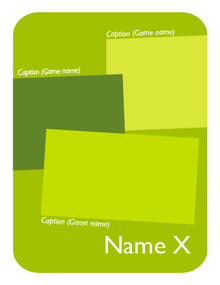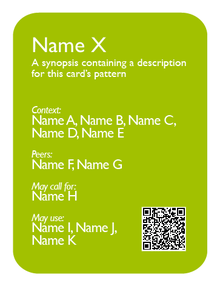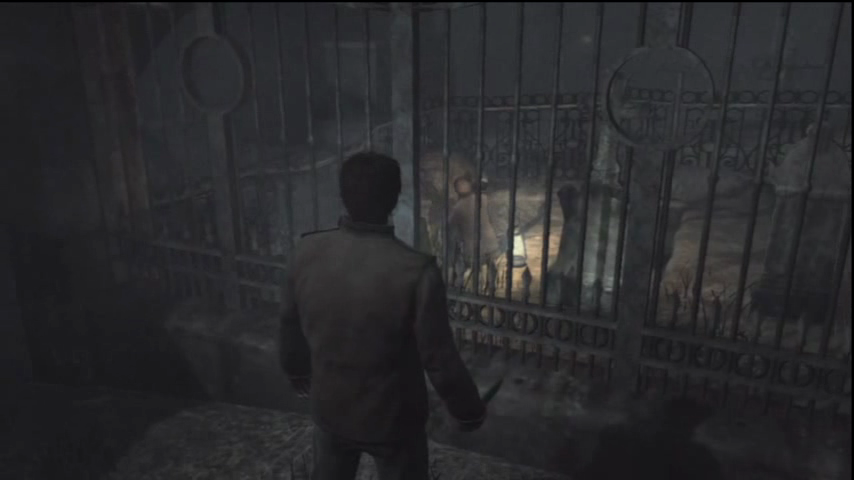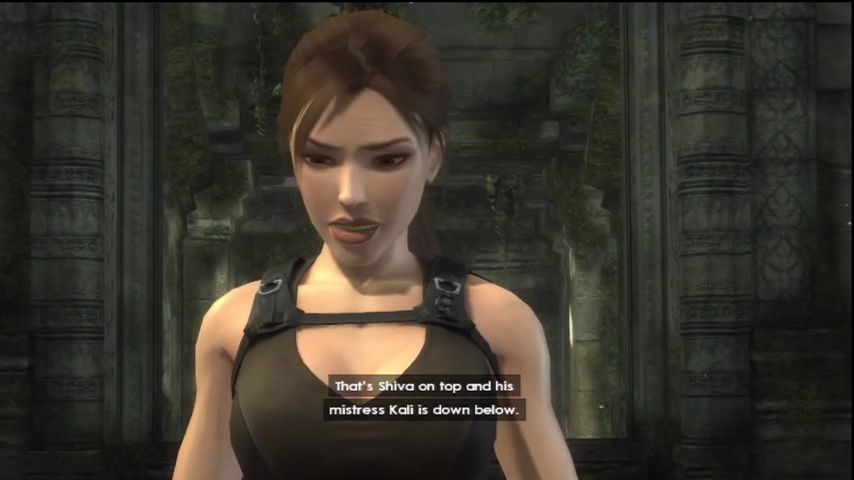Difference between revisions of "Thoughts"
ValterAlves (Talk | contribs) m |
ValterAlves (Talk | contribs) m |
||
| Line 2: | Line 2: | ||
| notesontop= This is a candidate pattern, entering version 2.0 of the [[Deck]]. | | notesontop= This is a candidate pattern, entering version 2.0 of the [[Deck]]. | ||
| candidatecard = Candidate Card (new in version 2.0) | | candidatecard = Candidate Card (new in version 2.0) | ||
| − | | | + | | synopsis = Expressing the character's thoughts |
| − | + | ||
| description = [[Thoughts]] allow expressing messages in a diegetic way. The associated introspection also contributes to inspire and maintain a sense of immersion in the experience. Additionaly, from an emotional standpoint, providing access to the PC's [[Thoughts]] has the potential to enhancing the empathy between the player and the PC. | | description = [[Thoughts]] allow expressing messages in a diegetic way. The associated introspection also contributes to inspire and maintain a sense of immersion in the experience. Additionaly, from an emotional standpoint, providing access to the PC's [[Thoughts]] has the potential to enhancing the empathy between the player and the PC. | ||
[[Thoughts]] often consist of [[Dialogue]] that contributes to the [[Narrative]], though other solutions have been explored. When [[Dialogue]] is used, it can actually be spoken (though usually in a quiter tone, being directed to the self), or it can be represented as a verbalization "inside the head" of the character. Usually, the latter case uses some acoustic effect, specially when the distinction is relevant (for instance when other characters are present). | [[Thoughts]] often consist of [[Dialogue]] that contributes to the [[Narrative]], though other solutions have been explored. When [[Dialogue]] is used, it can actually be spoken (though usually in a quiter tone, being directed to the self), or it can be represented as a verbalization "inside the head" of the character. Usually, the latter case uses some acoustic effect, specially when the distinction is relevant (for instance when other characters are present). | ||
| − | + | | examples= | |
| ex1=<mt p="Thoughts" g="Heavy Rain" w="{{R16by9W}}" h="{{R16by9H}}" i=2>[[Thoughts]] – and the chance to choose between them – as part of the [[Gameplay]].</mt> | | ex1=<mt p="Thoughts" g="Heavy Rain" w="{{R16by9W}}" h="{{R16by9H}}" i=2>[[Thoughts]] – and the chance to choose between them – as part of the [[Gameplay]].</mt> | ||
| ex2=<mt p="Thoughts" g="SilentHillHomecoming" altg="Silent Hill Homecoming" w="{{R16by9W}}" h="{{R16by9H}}">The question augments the focus and suggests that there is something special about this particular scene.</mt> | | ex2=<mt p="Thoughts" g="SilentHillHomecoming" altg="Silent Hill Homecoming" w="{{R16by9W}}" h="{{R16by9H}}">The question augments the focus and suggests that there is something special about this particular scene.</mt> | ||
Revision as of 19:35, 6 October 2011

|

| |
| The card's front face | The card's back face |
Candidate Card (new in version 2.0)
Contents
Synopsis
| Expressing the character's thoughts. |
Relationships
Description
Thoughts allow expressing messages in a diegetic way. The associated introspection also contributes to inspire and maintain a sense of immersion in the experience. Additionaly, from an emotional standpoint, providing access to the PC's Thoughts has the potential to enhancing the empathy between the player and the PC.
Thoughts often consist of Dialogue that contributes to the Narrative, though other solutions have been explored. When Dialogue is used, it can actually be spoken (though usually in a quiter tone, being directed to the self), or it can be represented as a verbalization "inside the head" of the character. Usually, the latter case uses some acoustic effect, specially when the distinction is relevant (for instance when other characters are present).
Examples
  |



